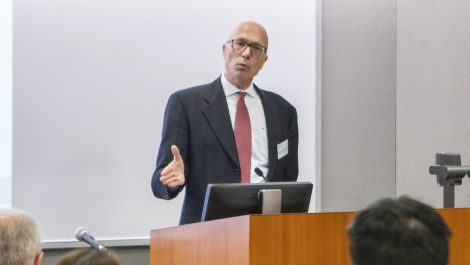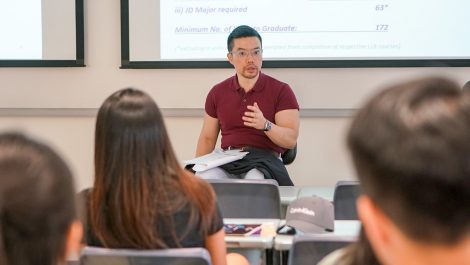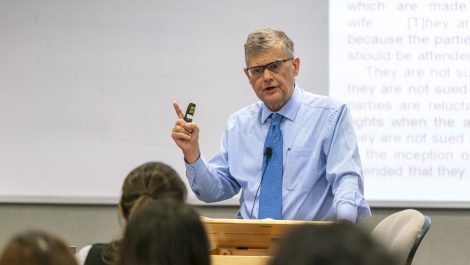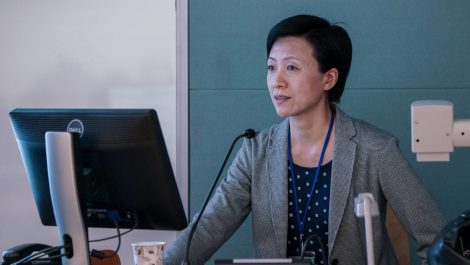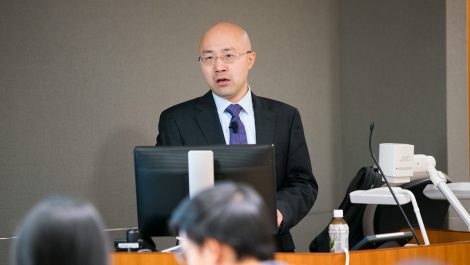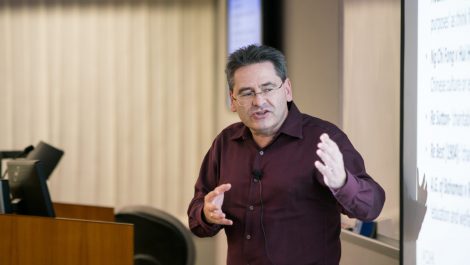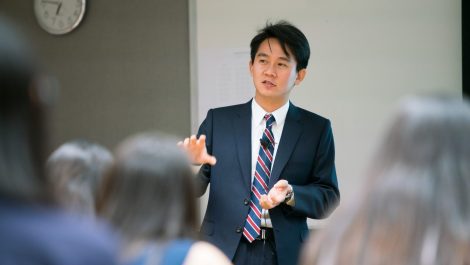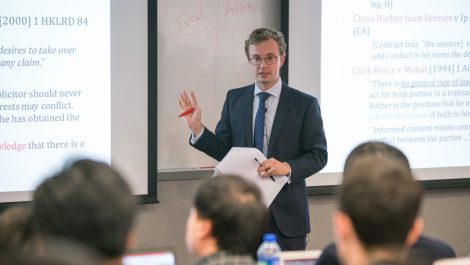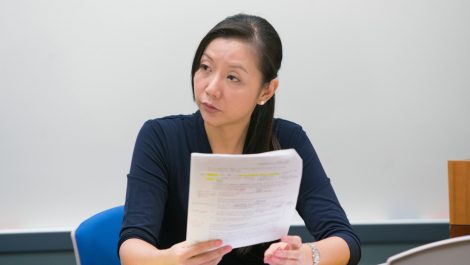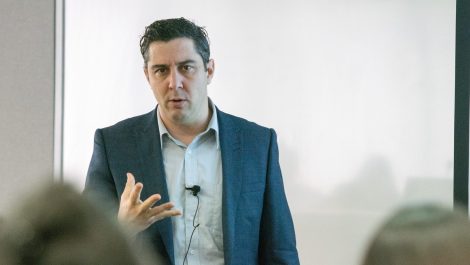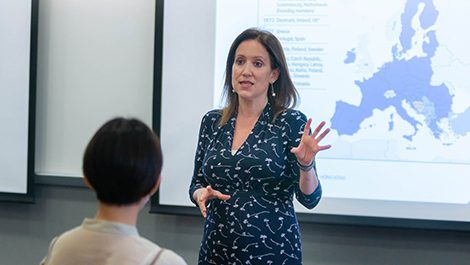News
Events
The 17th Intellectual Property Conference – ‘AI Beyond Imagination’
The CUHK Graduate Law Centre
Graduate Law Centre 2/F, Bank of America Tower, 12 Harcourt Road Central, Hong Kong
Why Study at CUHK LAW?
"After entering into the workplace for a considerable number of years, I firmly believe CUHK JD Part-time Programme is a wise choice for full-time professionals striving for a good work-study balance edge. The JD Programme has a flexible curriculum which allows students to cater for their personal living pace, and concurrently offers a wide spectrum of electives to further broaden the knowledge scope and create a fabulous brain-crossing opportunity with their careers. The professors encourage critical thinking and in-depth sharing on various law topics, which grant students further insight and solidifies the learning experience. Whether applicants are aiming for a career switch or simply learning law for self-enrichment, this programme deserves my high endorsement and I am confident that the skill-set and knowledge accumulated from the programme will efficiently facilitate further excellence in the next stage of career progression."

"Doing the CUHK JD Programme has been a truly rewarding and enjoyable experience. What I especially love about the Programme are the highly qualified and international faculty members, who bring to us not only high-calibre teaching but, more importantly, insightful understanding into their respective expertise. The faculty members who are practitioners share with us their first-hand experience and insights in landmark cases that they have been involved in, while the academics open our eyes with their in-depth knowledge through stimulating in-class discussions. Their passion and willingness to teach have been especially inspiring for aspiring lawyers like me. The Programme also provides a wide range of electives that includes more niche areas of law, so every student will always be able to pick something s/he is interested in. All in all, the JD Programme has been a truly invaluable and privileged experience and I believe wholeheartedly that the teaching and training the Programme provides will equip every student with the necessary skills to excel in their careers."

"Choosing the JD Programme has been one of my best decisions. First, the well-designed curriculum and remarkable list of electives have provided me to immerse in an intellectually stimulating environment while also receiving a holistic legal education. Second, the highly qualified and caring Faculty members, who come from both academia and practice, have offered me opportunities to explore the sophisticated legal world from numerous perspectives at an early stage. Third, the clinical and extra-curricular opportunities as well as my participation in the Jessup Moot have provided me with a good mix of academic and practical experience.
Although the JD Programme is demanding, it is rewarding. Whether you are going down the solicitor or barrister track, or pursuing a non-legal career after graduation, the JD Programme will prepare you for the greater challenges ahead and transform you into a more competitive candidate in the market."

"I have been fortunate to be awarded the Konrad-Adenauer-Stiftung Scholarship from KAS RECAP for LLM in Energy and Environmental Law. The LLM program provides a micro and macro understanding of energy and the relationship between energy and the environment. The lectures are well-organized and well-structured and the faculty offers a large number of elective courses. The faculty hosts diverse and interactive lectures and seminars by visiting professionals which provide an opportunity to engage with various ideas and a invaluable chance to network. Being part of the vibrant culture of Hong Kong has been a culturally enriching experience. "

"The LLM in Chinese Business Law has given me a deeper understanding of Chinese law and Chinese legal culture. It also helped me to better grasp the economic, political, and social implications of doing business in China. All professors were leading experts in their respective fields and encouraged the students to participate in class discussions. I appreciated the international and diverse learning environment at the Faculty, and I am happy to have made great friendships during my time here. The Faculty staff was very helpful and provided spectacular assistance to the international students. I was able to grow professionally and personally and I am very thankful for the time I spent at CUHK."

"After completing my legal studies in Switzerland and qualifying as an Attorney-at-law and working at court in Switzerland for some time, I wished to return to university in order to further develop my knowledge of international business law. When I learnt about the LLM in International Economic Law Programme at CUHK, I was convinced from the very first moment that this would be the right programme for me: not only is Hong Kong a common law jurisdiction where I (as a civil lawyer) would be exposed to another legal system, but it would also be an opportunity to learn more about Asia. These expectations were fully met by CUHK’s LLM Programmes. The professors are all experts in their respective fields. Also, learning together with my fellow Asian students has proven to be a culturally enriching experience. Last but not least, I do not want to miss the opportunity to say thank you to CUHK’s administrative staff who was always very supportive and made my life at the university as pleasant as possible."

"I can highly recommend CUHK's Part-time LLM in Common Law to (civil law trained) lawyers and business people looking for a more detailed and fundamental understanding of the (Hong Kong) common law system. The teaching is of a very high standard by excellent - mostly international - professors, and the teaching complex is state-of-art and easy to reach in down-town Hong Kong. Learning outcomes are practically relevant and academically stimulating, and therefore, in my opinion, highly valuable and useful both personally and professionally."

"I am completing a four-year PhD in Laws Programme at The Chinese University of Hong Kong. When you join CUHK LAW, you become a member of a vibrant and international academic community with distinguished professors working on cutting edge areas of global and regional relevance. CUHK LAW offers a great opportunity to study law in a culturally diverse city at one of Asia’s leading law faculties. I have had a rewarding academic experience at The Chinese University of Hong Kong which has opened up several opportunities. These include participation in international conferences, internships and academic exchanges abroad. Importantly, I have had a wonderful relationship with my supervisors who supported my research and academic progress. "

"Having completed an overseas law degree, the CUHK PCLL was critical in achieving two things – familiarising me with the local legal system and equipping me with the practical skills necessary for a trainee solicitor’s day-to-day work.
The courses offered by the Faculty are varied in range and thorough in depth, catering to each student’s interests and chosen career paths. In addition to being taught the relevant principles, we were trained to exercise pragmatism, whatever the task at hand.
I am grateful for the programme’s team of dedicated academics and practitioners. The use of interactive teaching methods served to spark enthusiasm, deepen understanding and even to cultivate friendships amongst us.
I highly recommend the CUHK PCLL to those seeking a supportive community, in which one experiences a stimulating transitional year from paper to practice!"
The courses offered by the Faculty are varied in range and thorough in depth, catering to each student’s interests and chosen career paths. In addition to being taught the relevant principles, we were trained to exercise pragmatism, whatever the task at hand.
I am grateful for the programme’s team of dedicated academics and practitioners. The use of interactive teaching methods served to spark enthusiasm, deepen understanding and even to cultivate friendships amongst us.
I highly recommend the CUHK PCLL to those seeking a supportive community, in which one experiences a stimulating transitional year from paper to practice!"

"The CUHK PCLL Programme has a comprehensive and flexible curriculum, that equips students with essential skills for their future careers as trainee solicitors or as pupil barristers. It offers students with all-round training in different core practice areas in the first semester. In the second semester, the Faculty offers a great variety of electives, so students may tailor their training for their intended areas of future practice. The whole curriculum is well-designed to cover important aspects of legal practice, as well as to cater for the needs of different individuals in their career development.
The professors at CUHK have in-depth experience in the legal profession and guide students to grasp the essence of different practice areas. The small groups are highly interactive. Students are assigned legal tasks that closely resemble those they will encounter in the real world. Tutors also provide timely feedback in small group sessions. They are willing to spend their personal time after class to answer students’ questions. The Faculty also has close connections with the legal profession. This enables students to meet with current legal practitioners in workshops and networking sessions.
After completing the CUHK PCLL Programme, I feel I am well-prepared to handle the tasks I will be assigned as a trainee solicitor. "

We are CUHK LAW!
Join Us
-
6/F, Lee Shau Kee Building
The Chinese University of Hong Kong
Shatin, New Territories, Hong Kong - (852) 3943 4399 / 3943 4423
Subscribe to our newsletter

